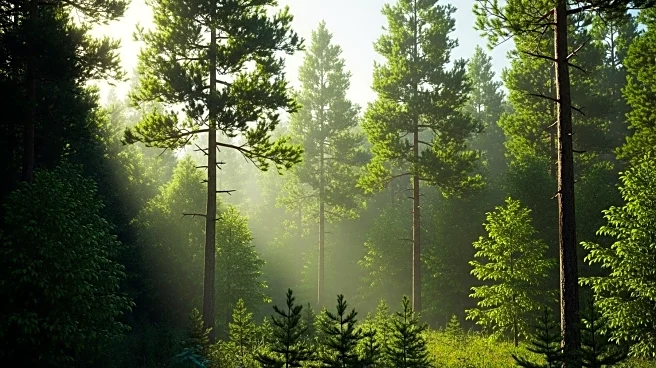What's Happening?
Sophie Pinkham's book, 'The Oak and the Larch: A Forest History of Russia and Its Empires,' delves into the historical and cultural significance of forests in Russia. Pinkham highlights the vast forest cover in Russia, which constitutes one-fifth of the world's total. The book examines the dual role of forests as both a protective barrier against invasions and a resource for modernization. Pinkham discusses the ambivalence in Russian society towards forests, with some viewing them as sacred and others as exploitable resources. The narrative traces the historical attitudes towards forests from the Mongol invasions to Soviet industrialization, drawing on the perspectives of Russian writers and political thinkers.
Why It's Important?
The exploration of Russia's forests by Sophie Pinkham provides insight into the cultural and historical dynamics that have shaped the country's development. Understanding the role of forests in Russia's history is crucial for comprehending its geopolitical strategies and environmental policies. The book sheds light on the tension between conservation and exploitation, a theme relevant to global discussions on sustainable development. By examining the cultural significance of forests, Pinkham's work contributes to broader conversations about environmental stewardship and the impact of historical narratives on contemporary policy-making.
What's Next?
The book's release may spark discussions among historians, environmentalists, and policymakers about the role of natural resources in national identity and development. It could lead to increased interest in the preservation of Russia's forests and influence future environmental policies. Scholars might further explore the cultural narratives surrounding forests in other regions, drawing parallels and contrasts with Russia's experience.
Beyond the Headlines
Pinkham's work highlights the ethical considerations of resource exploitation and conservation. The book may encourage readers to reflect on the cultural dimensions of environmental policy and the long-term implications of deforestation. It also underscores the importance of integrating historical perspectives into contemporary environmental debates.









